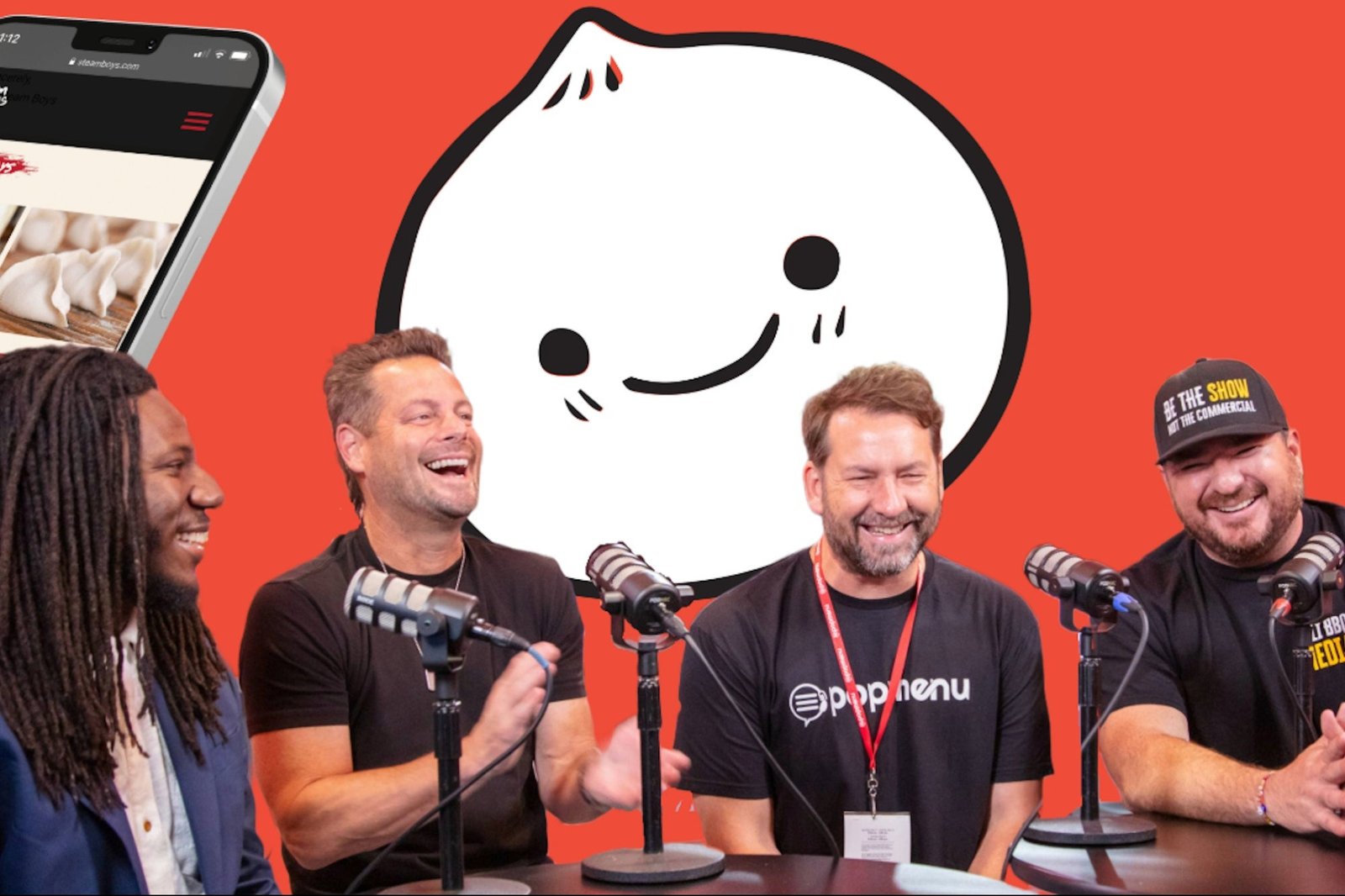How popmen changes the technical game of the restaurant | Businessman
The expressed views of the contributors of the entrepreneur are their own.
Tuna Junard lost the client – not to a competitive agency, but on a software platform.
That stuck. Junard operated marketing for a restaurant when he dropped it in favor of a technological tool. But instead of cleaning it, he was curious. This decision changed the trajectory of his career and led to his classmates Steam Boys, a fast occasional Chinese brand of comfort food that grew from three to nine places.
Tech? Popmen.
I will be forgotten, built by two founders who spent time inside the dining room, not just for laptops, was not flashy, but it worked. And Junard, once skeptical, became one of his most amazing advocates.
Related: Jon Tafer joined with this company $ 300 million to build something bigger than a restaurant
Tech
Brendan Sweeney and Tony Roy did not want to build only a restaurant. They wanted to build it with people from the restaurant.
As the CEO and COO of Popmen-and co-founders-it distinguished them all. From the beginning, Sweeney and Roy spent time inside the dining room, not just for laptops. They were interested in the software that looked good on board the playground, but the rush to dinner was bold. They wanted tools that solved real problems such as clumsy menu updates, disconnected marketing and constant question: In fact, something works?
Sweeney Brught background of the product and willingness to go deep with operators. Roy, who came from surgical thinking, Busht Energy and a travel schedule that could compete with a tourist musician. Toronto, Miami, Atlanta – anywhere the owners spoke, listened.
They built the truth: Most operators fly blind. So they created a popmen, a platform that connects the website, menu and marketing of the restaurant via e-mail, text, social media and AI campaigns. Everything lives in one place and is bound to real results.
What supported the company’s growth was not just a product. It was close. Roy and Sweeney remained close to bread points. They listened, built and still appeared.
“We don’t divide from our customers,” says Roy Shawn Walchef from Cali BBQ Media. “We are part of the same world.”
This thinking continues to create society. Employees receive capital. Product managers are waiting for fairs. Feedback loops are real. And resonates with operators across the country, although not always.
Related: How this massive food company has changed its fleet of trucks to rolling billboards and lessons taught to build a brand
Request for help is not weakness
Junard knows what it was like, what it was like to drop from the marketing of the restaurant in favor of popmen. “I took it personally,” he says. “But after a minute I had to admit I was curious.”
What he found was more than automation. It was a smarter, connected system that actually showed what worked.
The discovery stuck with him. So when Junard became the main marketing director and co-founder of Steam Boys-growing concept of dumplings based on the southeast-bushing popmen with him.
Before Steam Boys opened the third rental, Junard knew that the team needed more clarity. At that time they introduced popmen. When the brand expanded to nine restaurants, it stopped guessing what he landed. He had real data he could work with – except for dollars.
“I used to be a good estimate,” he says. “I have numbers now.”
Popmen gave him time and trust. Instead of fearing every post, he could focus on the brand identity. How’s Steam Boys? What does this mean? That’s what he wanted to scalp.
As society grew, also the party. Junard began to rely on the patterns of popmenu backends – what the founders call a growth book. It outlined things like how big the guest database should be to support revenue of $ 3 million, or how often the restaurant should send to its audience to avoid theft. It wasn’t dogma, but it was a direction. And he changed this direction, as Junard thought of marketing.
The most famous part? Junard is now the biggest popmen champions. And the founders who build it do not lead with hype. They lead with humility.
“Finally,” says Junard, “I realized I asked for help not to look weak.
This is a kind of popmen’s thinking has been built to support, not by replacing people, but by giving them space to focus on Whats: Food, Story and Guest.
Related: The conversation about AI with Sam Altman threw their minds – so they wrote The Playbook for Business they want to use the technique
O Restaurant
Restaurant It is a toast B3Wer, a powerful sales system and restaurant management, which helps restaurants to improve traffic, increase sales and create a better guest experience.
Toast – Dusing successful restaurants. More information about toast.
Join the best CEOs, founders and operators at Level UP conference and unlock strategies for scaling your company, increasing revenues and building sustainable success.
Tuna Junard lost the client – not to a competitive agency, but on a software platform.
That stuck. Junard operated marketing for a restaurant when he dropped it in favor of a technological tool. But instead of cleaning it, he was curious. This decision changed the trajectory of his career and led to his classmates Steam Boys, a fast occasional Chinese brand of comfort food that grew from three to nine places.
Tech? Popmen.
The rest of this article is locked.
Businessman+ Today for access.
(Tagstranslate) Business Solutions

